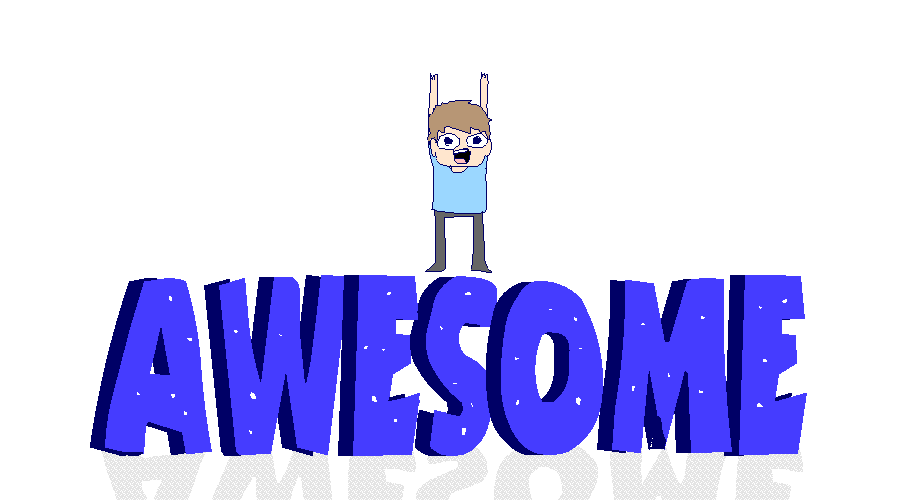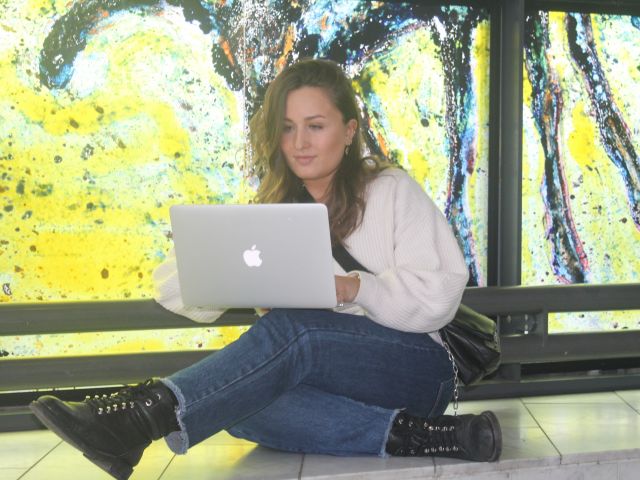7 ways to nail a job interview

(Illustration: Giphy)
With personal experience and tons of job interviews in Denmark, Berlin and New York City behind her, student reporter Caroline Sølver shares her advice and first-hand experience, which can help you nail your next job interview.
For the past six years, living in Berlin, New York City, and Copenhagen, I’ve been to a fair share of job interviews. And no, job interviews are not exactly fun and can be almost as scary as taking an oral exam. However, the more job interviews you experience, the less scary they become, and the better you get at acing them.
And in time, I’ve become quite a regular at job interviews, meaning that I now know a handful of ways that might just help you to nail the interview process. From knowing your elevator pitch by heart, bringing a notebook, and being ready to share your own insecurities or limitations.
I hope that these tips will help you to create a strong, positive, first-hand impression, make you stand out for the right reasons, and hopefully get you a better shot at being the chosen candidate for the job.
First off, the application
The first step in a job application process is the application. In order to stand out and hopefully be chosen for a job interview, make sure your application stands out.
1) Instead of elaborating on your experience in the application, which is already stated in your CV, take your experience to the next level by describing what you’ve done and obtained in your previous jobs. If possible, include numbers that illustrate the difference you made in the position with specific examples.
Examples could be:
- I planned and executed an event that resulted in xxx profit or xxx new customers.
- I conducted research that helped the company to obtain a competitive advantage.
- I successfully onboarded xxx clients.
2) And if you want to really stand out, apply your previous work experience to relevant examples in the job you are applying for. The goal is to describe how your experience is relevant to the job.
3) Furthermore, it is important that you use the same keywords listed in the job description. If the company is requesting a candidate who is outgoing, analytical, a go-getter or something else, make sure you use those keywords when describing yourself as a professional.
4) End the application with the note that you hope to get the opportunity to elaborate on your work experience at a personal interview. This shows initiative and that you are eager to interview for the position.
Know your elevator pitch
Your application was on point, and you’ve been called in for an interview. Way to go! First-hand impressions are everything. Make sure you show up on time, preferably a few minutes before, that you’re showered and clean, dressed appropriately and look prepared.
At the interview, you might be asked to introduce yourself. Instead of looking dumbfounded and not knowing what to say and highlight about yourself, know your elevator pitch.
Your personal elevator pitch should include the essential basics; where you are from, your age, your education, a brief introduction to your latest experience, and your hobbies to show them that you are an interesting human, even when you’re not working, as well as the reason you are at this meeting. What are your goals?
You should also bring a notebook. This shows that you care, you are prepared and well informed. The notebook can also help you remember the important points you want to share, ideas for your take on this position or any questions you might have.
Do your background research
You have presented a good first-hand impression, introduced yourself, and the next part of the conversation might revolve around the company and the position. This is where you show that you have done your background research about the company and the responsibilities associated with the position.
Ideally, you want to give the impression that you know the company by relating your work experience and personality to the company holding the interview. One way to do this is by stating how your experience and competencies are relevant in this instance.
Have advice ready for what you will do
Not only have you done your research about the company and the position. You have also assessed its current situation, even its competitors, which has led you to understand what initiatives you would take, should you be hired.
You can impress the interviewer by sharing concrete and specific examples that illustrate your take on the position and what you would do to help move the company in the right direction. This shows initiative, that you are professional, full of ideas and ready to get going!
Be ready to outline your limitations
The more professional, formal and extensive the interview is, the higher the chance of getting hit by different questions. If an HR professional is present, get ready to answer tricky questions. One example is being asked to describe your limitations, a negative trait about your personality or way of working, or an example of when you encountered a task in your professional life that did not sit well with you.
These questions are tricky because, of course, you do not want to ruin your chances by highlighting your negative traits. Instead, the best option is to respond in a way that rounds off your negative answer with a positive ending.
For example, when asked about your limitations, you could reply: “I’m a perfectionist and always want to deliver the very best results. In the past, that’s caused me to overwork myself, because I never felt that the result would be good enough. However, having become aware of this trait, I’ve learned when to let go and that perfection can stifle creativity.
Your best bet is to think about these tricky questions before attending the interview so you have time to prepare some good and honest answers.
Ask away!
I remember being younger and always answering “No!”, whenever anyone asked if I had any questions. I thought asking questions came across as if I were uninformed and that I had not done enough research – and I did not want to take up unnecessary time and space. However, the opposite is true.
Towards the end of most job interviews, the interviewer might ask if you have any questions. This is your time to show that you truly care and to illustrate that you have done your research. Before your job interview, list a couple of relevant questions in your notebook, so you are prepared to shoot away.
Relevant and interesting questions could be:
- What is it like to work here? Can you describe the company and office culture?
- What are the objectives of this role?
- What are the day-to-day responsibilities of this position?
- In what direction is the company headed?
Ideally, these questions will also help you assess whether this company, its culture and the position are really a good match for you.
Applying for jobs is a relentless game
My mom once told me that job hunting is a relentless, ungrateful game. The issue is that there is no second or third place. Only one winner. You might be the perfect candidate who did everything right from the application to the interview, yet someone else got the job. They might have asked for a lower salary, maybe they were recommended by a mutual connection or they know someone who knows someone. You will never know.
In the end, try not to beat yourself up if you miss out on the job, although you nailed the interview process. Ultimately, going to interviews, lots of them, is a great way to learn and feel more comfortable the next time you have an important interview. Hopefully, these seven ways to nail a job interview inspired you and will get you through your next job interview with flying colours.
Good luck!



































































































































Comments